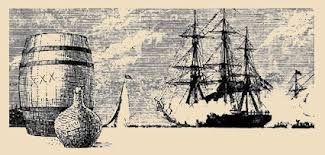The unleashing of the entrepreneurial spirit, in the colonies, was a temporary boon for England. The American colonists produced quite an array of products. Britain benefited on multiple layers. First, many of the colonists’ exports were raw materials. Far more value was added by the English with the finished goods. Secondly, Britain looked to keep a tight monopoly on the colonies, so that the goods were far less than the real world markets.

During this time of the Empire, Britain was feeling the effects of being over extended. Portugal, Spain, and the Netherlands were in superior trading positions and from a war perspective, Portugal and Spain were a threat. England was a predator warrior nation; constantly in one conflict or five. It could never let sleeping dogs lie with France.
With the advent of the HEIC and other moves, the House of Stuart experienced a weaker position than the House of Tudor and previous lines. Additionally, the Legislature became a competing power.
The Legislature, at the behest of the trading companies and its own arrogant viewpoint of the American colonies as their serfdom, saw that the Navigation Acts were passed. All the colonists’ trade had to go through Britain, in every way. For those in New England, they did not have many trading commodities, outside of fish and timber. Outside of their living sustainability, the rocky soil did not yield staple crops. As Mother Britain did not really want their fish and timber, it was sent to the British West Indies for molasses.
Many statists sneer at laissez-faire capitalism; relegating it to anarchy. For once, they are correct. Thus in the birth of the Yankee spirit, New Englanders turned to producing rum. This finished product was sent to British African colony (modern-day Republic of Ghana), which, in turn, sent slaves to the BWI. The rum traders found it far more profitable to deal with the Dutch, French, and Spanish than Unmerry Ole England.
In 1733, the Molasses Act was passed by Parliament. Children, growing up in New England, during this time period, had to be taught that dedicated, Yankee molasses-smuggling nationalist was not all one word and that this was an art form: a means of expressing the sovereignty of a dawning culture. The colonists, not just the New England version, had become more emboldened than ever before, and this sentiment was abetted by Wag-the-Dog England and the war-of-the-day special with France (who was usually just as eager to oblige).
The trading companies and thus, Parliament’s struggle over the molasses imports had achieved an epic magnitude. In desperation, Parliament passed The Sugar Act in 1763, employing even the British Navy. For New Englanders, molasses smuggling was an occupation worthy beyond a mere pathetic doctor or lawyer. It was a patriotic duty.
On the surface, the Navigations Acts, across the board, did not create a huge market price differential, especially taking into account sailing risks. The impact that the trading companies and Parliament failed to grasp was that the market gap for certain commodities was substantial and these were towards those merchants who were most politically active.

George III, having ascended at an inopportune time, was instantly faced with turmoil. His coalitions broke easily. Much of it had to do with his inheritance of The Seven Years’ War, which left Britain with deep debts. His Chancellor of the Exchequer pushed through Townshend Revenue Act in 1767 which imposed duties on glass, lead, paints, paper, and tea imported into the colonies. This had followed the issuance of the Proclamation of 1763, the aforementioned Sugar Act, and the 1765 Stamp Act. From this collection was born the cry: “Taxation Without Representation.”
In the aftermath of the French Indian War, Monday morning armchair quarterbacks can easily view the conflict as both an irony and a paradox. A young George Washington would actually start the first worldwide war with his led ambush of a small French squad. Later, with more experience, he would fight on behalf of Britain for several years. He then went on to become the wild card against the British armed invasion of the colonies.
In Part 5, we will discuss: this means war.
https://steemit.com/anarchy/@aedroberts/so-you-think-you-know-american-history-part-1
https://steemit.com/anarchy/@aedroberts/so-you-think-you-know-american-history-part-2
https://steemit.com/anarchy/@aedroberts/so-you-think-you-know-american-history-part-3
Very interesting american history, in depth too! I love it!
Downvoting a post can decrease pending rewards and make it less visible. Common reasons:
Submit
@buy4balance Thanks and welcome to Steemit. You might want to check out the preceding parts.
Downvoting a post can decrease pending rewards and make it less visible. Common reasons:
Submit
Interesting
Downvoting a post can decrease pending rewards and make it less visible. Common reasons:
Submit